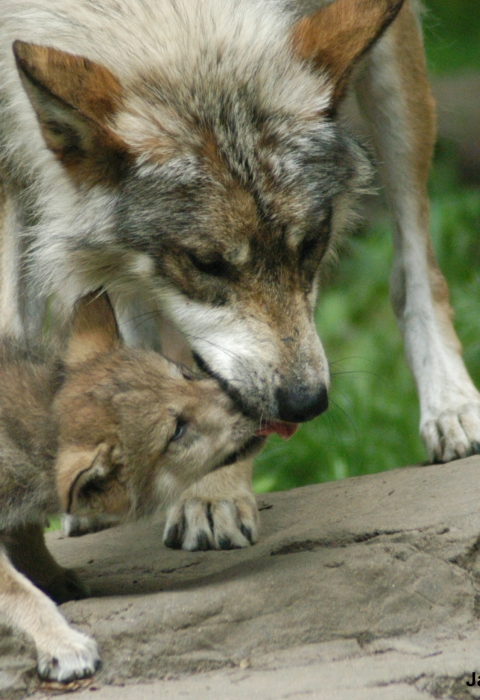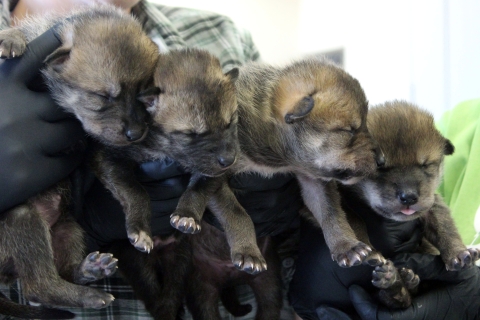What is cross-fostering?
Cross-fostering is an innovative technique used by the Mexican Wolf Interagency Field Team to increase genetic diversity in Mexican wolf populations in the wild. Wolf pups are born in captivity at one of a number of different accredited breeding facilities across the country. When the pups are 14 days old or younger, they are placed into a den of wild Mexican wolves with pups of the same age. The surrogate wild wolf parents raise the new pups as if they were a part of the original litter. These surrogate parents are usually experienced and have successfully raised litters in the past.
What are the benefits of cross-fostering?
1. An increase in genetic trait variation
Cross-fostering assists in Mexican wolf population recovery by increasing genetic diversity. Genetic diversity refers to the range of different traits present in a given population. A greater number of traits in a population means that there are likely more individuals who have traits that are best suited to survival in their environment.
2. An increase in captive-born wolf survival.
The cross-fostering program also allows captive-born wolf pups to have greater survival in the wild, compared to adult captive-born releases. Cross-fostered Mexican wolf pups have approximately the same survival rate as wild-born pups. Overall, pups raised using the cross-fostering method tend to have a greater survival rate than those introduced using other wolf release methods.




